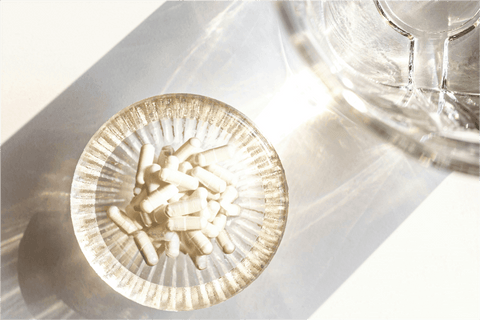What is the Purpose of a Toxicology Study?

Key Takeaways
- Toxicity evaluations determine chemical safety: These assessments identify dangerous substances in dairy products and set protective safety standards.
- Toxicology plays a crucial role in drug development: Preclinical and regulatory studies ensure new pharmaceuticals are safe before entering clinical trials and reaching consumers.
- Alternative testing methods are advancing: Ethical concerns over animal testing are driving the adoption of in vitro testing and computer modeling to predict toxic effects.
What is Toxicology?
Toxicology is the science of studying how natural or synthetic substances cause harmful effects on living systems, whether humans, animals, or the environment.
What are harmful or adverse effects?
Harmful or adverse effects refer to any negative outcomes that compromise an individual's survival or disrupt their normal functioning.
Importance of Toxicology Studies for Public Safety
Toxicology studies are essential for
- Safeguarding public health by detecting hazardous chemicals.
- Establishing regulations for food, drugs, and environmental safety.
- Supporting regulatory bodies in making informed decisions about product safety.
These studies provide essential data to prevent exposure to dangerous substances, thereby reducing the risk of illness, injury, or long-term health effects.
Toxicology Studies in Drug Development
Toxicity assessments are a critical part of drug development. They ensure that new medications are safe for human use before moving into clinical trials.
Preclinical Toxicology Studies
Preclinical studies assess the safety of drugs before human trials. These studies focus on:
- Evaluating the drug’s toxicity levels in animals.
- Identifying potential side effects.
- Determining the maximum safe dose.
These findings help inform clinical trial designs and ensure that only safe drugs proceed to human testing.
Regulatory Toxicology Studies
Regulatory toxicology studies are required for drug approval by agencies like the FDA. These studies help:
- Assess long-term effects, such as carcinogenicity and reproductive toxicity.
- Ensure compliance with safety regulations.
- Provide data for labeling warnings and usage recommendations.
Real-World Toxicology Example
Toxicity investigations extend beyond pharmaceuticals and are applied to chemicals in consumer products, industrial environments, and natural ecosystems.
Animal Testing in Toxicology
While controversial, animal testing remains a standard in toxicology studies. It helps:
- Understand how a substance affects biological systems.
- Provide data that can't yet be replicated through other methods.
Ethical considerations have led to stricter regulations and the development of more humane testing methods.
Alternative Methods in Toxicology
Due to ethical concerns with animal testing, alternative methods are becoming more prevalent, including:
- In vitro testing: Using cells and tissues in a lab setting to test toxicity.
- Computer modeling: Predicting toxic effects through advanced algorithms.
These methods aim to reduce reliance on animal testing while still providing reliable data.
How Does Toxicology in Pharmacology Impact Drug Safety?
In pharmacology, toxicology specifically examines how drugs interact with the body, potentially causing harmful effects. This field is crucial for ensuring drug safety and minimizing risks.
Identifying Drug Interactions
Toxicology in pharmacology plays a crucial role in identifying harmful drug interactions that can lead to toxicity or adverse reactions in the body.
Establishing Safe Dose Ranges
Through toxicological studies, pharmacologists determine therapeutic and toxic dose levels, ensuring the safe usage of medications.
Preventing Drug Toxicity
By understanding how drugs affect various bodily systems, toxicologists help minimize the risk of harmful side effects and prevent toxicity.
Chemical Toxicology: Studying Industrial and Environmental Toxins
Chemical toxicology deals with studying the toxic effects of chemicals found in industrial and environmental settings. These studies are essential for:
- Regulating industrial chemicals.
- Reducing environmental pollutants.
- Protecting public health from harmful exposure.
Types of Chemicals in Toxicology Studies
Common chemicals studied include:
- Pesticides: Used in agriculture but can have harmful effects on wildlife and humans.
- Heavy metals: Lead and mercury, for example, are toxic at high levels.
- Industrial solvents: Commonly used in manufacturing, these chemicals can have long-term health effects.
Toxicology in Medical Context
Medical toxicology specializes in identifying and managing toxic exposures, from workplace hazards to accidental poisonings.
Toxicology in Medical Settings
Toxicologists work in various settings, including:
- Hospitals: Handling cases of poisoning or overdose.
- Emergency services: Offering immediate treatment for chemical exposure.
- Laboratories: Conducting tests to identify toxins in biological samples.
A Guide to Conducting a Toxicology Study
Conducting a toxicology study involves several phases to ensure comprehensive analysis.
Phases of a Toxicology Study
- Preclinical Phase: Tests are conducted on animals to assess safety before human trials.
- Clinical Phase: Toxicity is monitored in human trials alongside the drug's efficacy.
- Post-market Surveillance: Continuous monitoring of a drug’s effects after it's released to the public.
Key Tools Used in Toxicology Studies
Toxicology studies utilize advanced tools and technologies, including:
- Assays: Laboratory techniques to measure the concentration of toxins.
- Biomarkers: Biological indicators used to measure exposure or effects of toxic substances.
- Bioinformatics: Analyzing large datasets to identify patterns in toxicology results.
FAQs
What does a toxicologist study?
A toxicologist studies the harmful effects of chemicals, substances, and toxins on living organisms, including humans, animals, and the environment.
What does a toxicology test for?
A toxicology test checks for the presence of harmful substances such as drugs, chemicals, and toxins in the body.
What do you need to study toxicology?
To study toxicology, you typically need a bachelor’s degree in biology, chemistry, or a related field, followed by specialized training in toxicology.
Are toxicology studies done in humans?
Yes, toxicology studies can be done in humans, typically in clinical trials after preclinical animal testing.
How many years does it take to be a toxicologist?
It takes around 4-8 years, including a bachelor's degree and advanced toxicology training, to become a toxicologist.
Conclusion
In conclusion, toxicity evaluations are vital for protecting public health by detecting dangerous substances and creating safety guidelines. By understanding how these studies work, we can make informed decisions about the products and chemicals we encounter every day. To explore high-quality supplements and products that prioritize your health and safety, visit Just Glow for trusted options that support your well-being. Stay informed, stay safe, and take control of your health today!
Summary
A toxicology study plays a crucial role in evaluating the safety of everyday chemicals, including medications and household items. It helps identify hazards and establish safety protocols to safeguard public health. By understanding the purpose of a toxicology study, you'll learn how these investigations prevent harm and guide the safer use of substances in our everyday lives.






